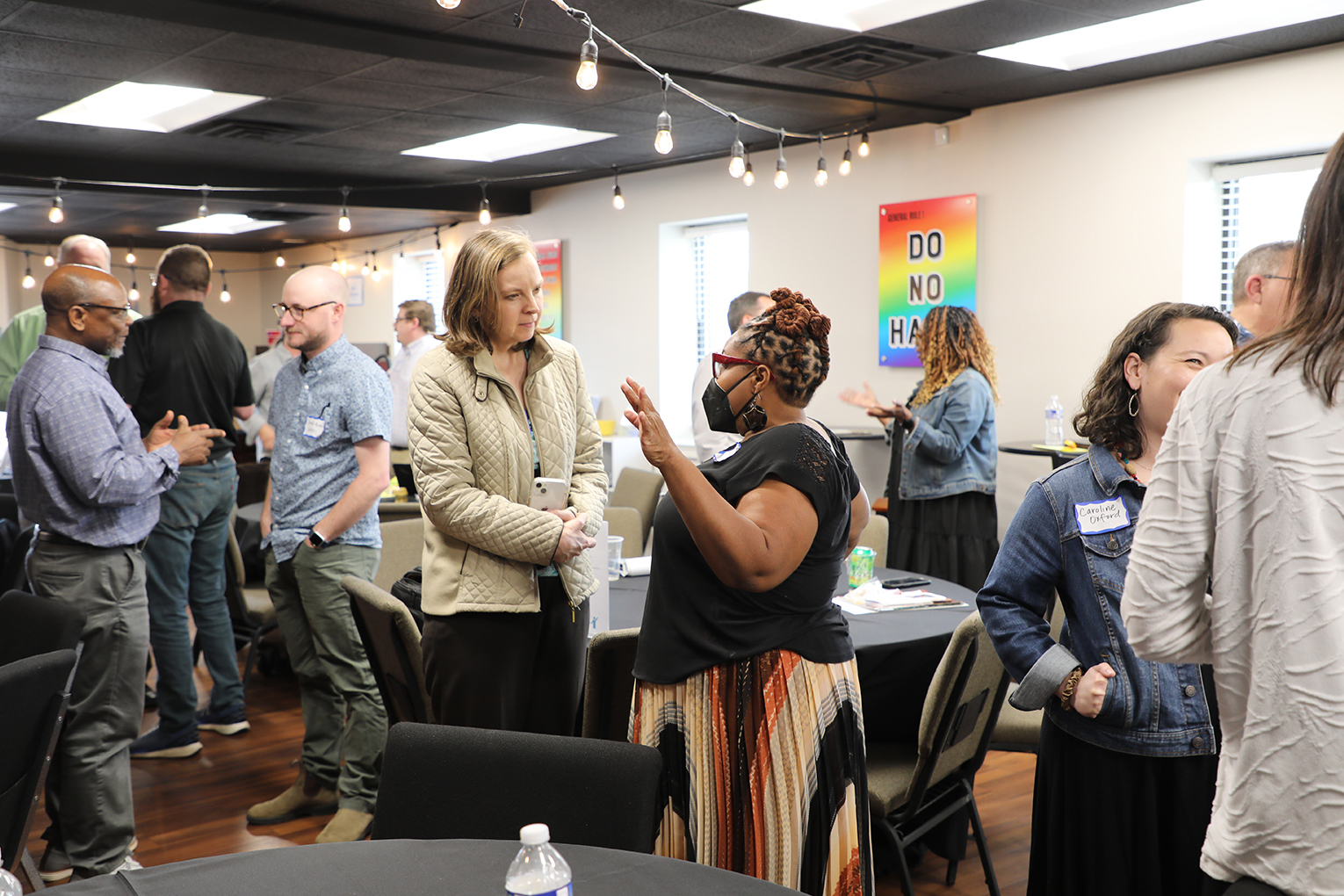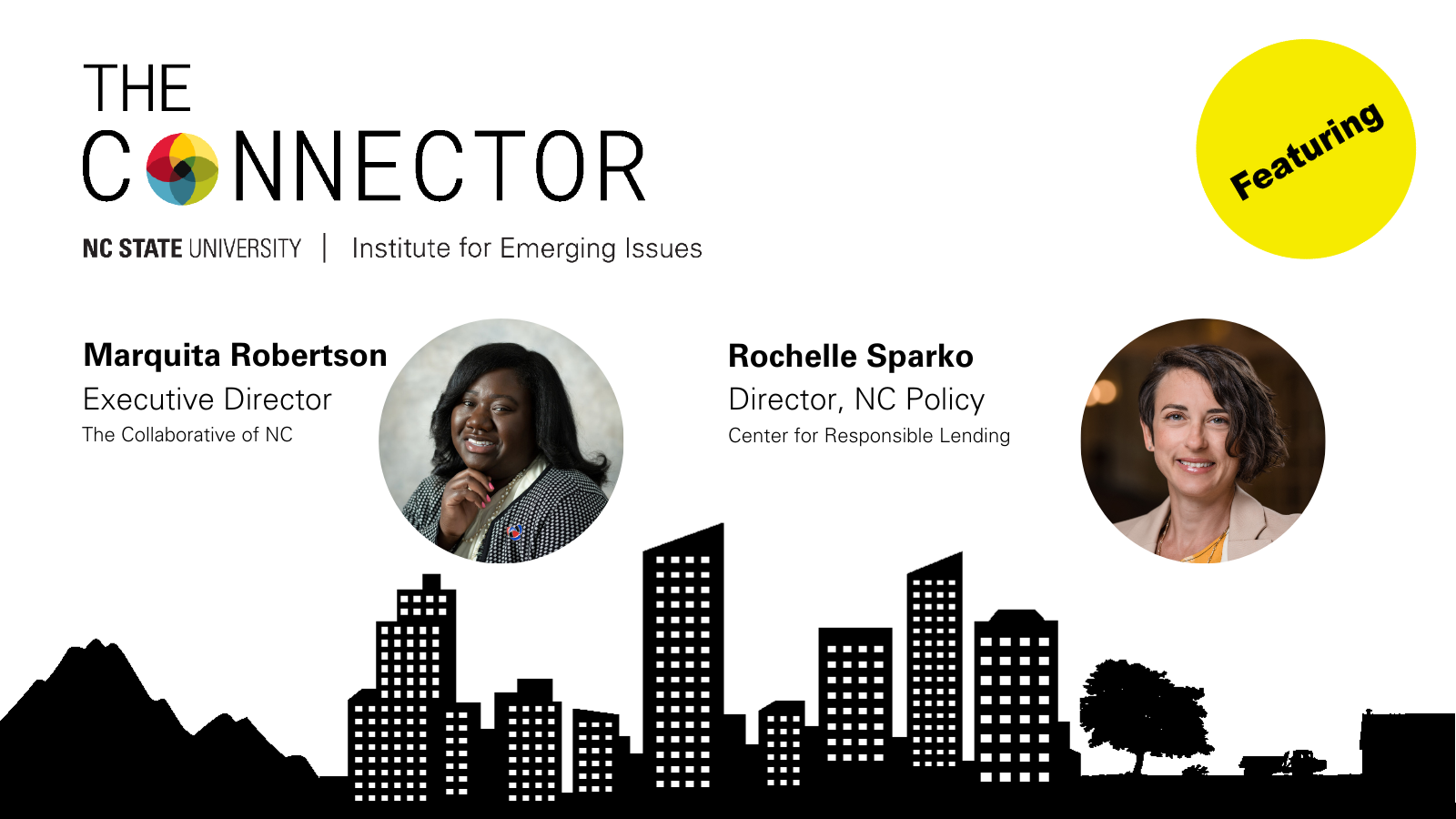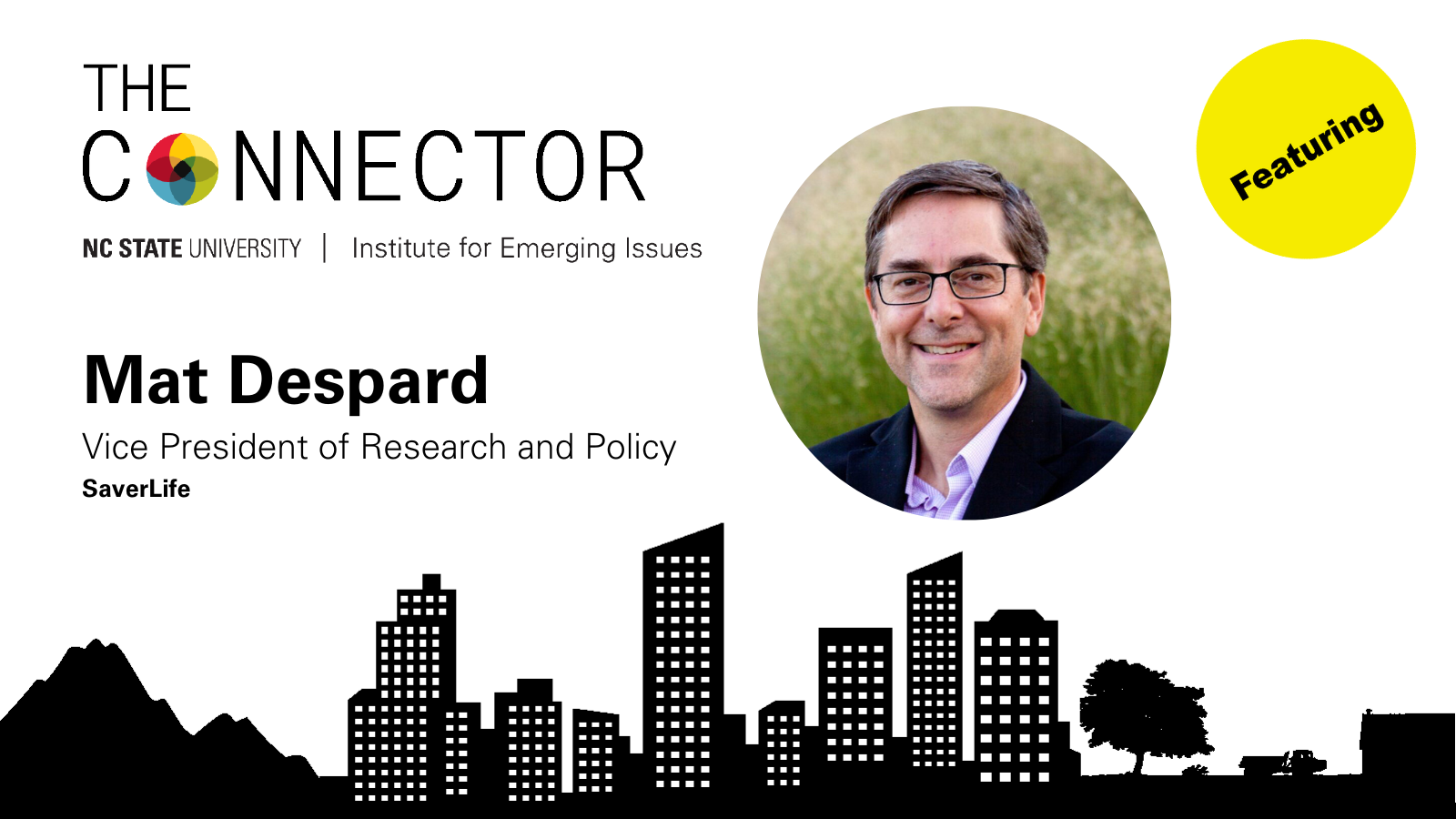KidsReadyNC | Six Month Mark
 Six months have passed since four North Carolina communities were chosen to participate in the 18-month KidsReadyNC initiative, which aids communities in strengthening local leadership capacity in their early childhood development systems.
Six months have passed since four North Carolina communities were chosen to participate in the 18-month KidsReadyNC initiative, which aids communities in strengthening local leadership capacity in their early childhood development systems.
In conjunction with the initiative’s meeting in Asheboro this week, we checked in with the folks from Chowan, Catawba, Randolph and Rockingham counties to see how their work’s progressing, what challenges they’re facing and if their goals have shifted.IEI’s Assistant Director Pat Cronin leads the effort and sees KidsReadyNC as playing to IEI’s strength in pulling people out of their working “silos,” connecting them to each other and to other resources, and promoting collaborative action.
“I’m excited how despite all these challenges they’re coming together around some big goals,” says Cronin. “At the moment, our work with them is focused on taking those big goals and creating action plans informed by data and each community’s context.” Long-term goals are being broken into a series of smaller objectives, each with tasks and timelines. As participants shared with each other this week, progress is being made, not just in planning but in initial efforts to raise community awareness and enlarge their coalitions, Cronin said.
Educators at all levels have long known that the foundation for students’ personal and academic success starts in the first years of a child’s life. For the past two decades, research spanning from brain development to the effects of childhood trauma, as well as a generation of working mothers demanding better childcare, has started to convince more and more people, but more need to still get on board.
Early childhood matters, but building accessible early childcare systems that work isn’t easy, as the KidsReadyNC participants also shared. Packed professional schedules and the complexity of working across early childhood disciplines prove challenging, but IEI’s KidsReady NC participants are staying the course.
Funded in part by grants from The Belk Foundation and The Duke Endowment, and with support from the Federal Reserve Bank of Richmond and the Frank Porter Graham Child Development Institute, the initiative is helping communities improve outcomes related to one or more of the seven “measures of success” identified by NC Pathways to Grade-Level Reading.
Here’s how some of our participants are doing at the one-third mark of the 18-month initiative, with remarks provided by KidsReadyNC leaders in each county:
Randolph County
Lisa Hayworth, executive director of the Randolph Partnership for Children
KidsReadyNC goals: Building better access to quality early childhood care
What concrete things have happened since you’ve been a part of KidsREADY?
Development of an engaged, diverse group of stakeholders motivated to work toward better outcomes for children.
What are you learning?
It’s much easier to have a task and do it, than to step back and intentionally work through the Results-Based Accountability (RBA) planning process [this process is an important step of the KidsReadyNC] ahead of creating an action plan. Many of our leaders are doers, so to step back and work through questions that reframe goals and our work has been challenging. That said, it’s also been a good process.
Any a-ha moments?
The impact of ACEs on everyone around us, affecting educational, health, social-emotional and economic outcomes.
What are the challenges?
Understanding the expectations of IEI leadership and TA Group; motivating full participation; helping everyone see the big picture while still feeling like they are accomplishing something with their participation.
What big goals have you met? What are the next goals?
Working through the RBA process; identifying compatible programs to help us with our messaging, such as the Resilience documentary and Boston Basics. Our next big goal is to complete our action plan based on the RBA work, then complete relevant fiscal mapping.
Chowan County
Sheila P. Evans, principal, White Oak Elementary School
KidsReadyNC goals: Providing universal access to early childhood programs to all four-year-olds in their area
What are the concrete things that have happened since you’ve been part of KidsReadyNC?
Our data shows that there is a discrepancy in what children know and can do based on their experience as a four year old. To level the field, Chowan CARES decided to ensure curriculum resources and training were available to all childcare centers. With a grant from PNC, Letterland was placed in eight childcare centers and two training sessions were provided. (Only two centers chose not to participate and we are reaching out to them again to try to engage them in this work.) A part-time Letterland facilitator was hired by SmartStart to oversee the program, conduct fidelity checks, and provide support to childcare providers. Also, all childcare centers have at least one person trained in Story Exploring through funds provided from a previous grant and PNC. Story Exploring helps children better understand literacy concepts and pre-reading skills. It is a bilingual program which also includes a parent connection, Story Extenders. Story Exploring resources are also available at our local public library. Our next step includes placing a math resource and a social-emotional training resource in each childcare.
What are you learning?
Change takes time; Fiscal mapping – this is our first experience with this activity; It takes a lot of people working together to push the needle.
Any a-ha moments?
That our banks must support our community through CRA; the Resilience film and ACEs is new to most of us; our perspective has been broadened from episodic to thematic which will impact our community over time.
What are the challenges?
Keeping key stakeholders at the table; securing buy in from the stakeholders. Securing funds to expand early childhood initiatives; then keeping those initiatives funded. Juggling multiple responsibilities, projects (KidsReadyNC is just one plate we are spinning.)
What big goals have you set? What the next goals?
Our next strategy is to bring the Resilience film to our community.
Catawba County
Kim Holden, executive director of the Catawba County Partnership for Children
KidsReadyNC goals: Providing better access to early childhood care.
What concrete things have happened since you’ve been a part of KidsReadyNC?
We have invested more energy in increasing awareness of the Adverse Childhood Experiences research by showing the Resilience documentary to many community groups. We feel as though this is an important step towards increasing access to high quality early childhood environments, as more people will begin to understand how critical it is for young children to receive high quality early childhood opportunities.
What are you learning?
Over the course of our KidsReadyNC work we have learned that our community is very responsive to the messages around toxic stress and resilience. We are working to build the bridge between early childhood experiences and ultimate academic success in reading by the third grade.
Any a-ha moments?
Early childhood work is extremely multi-faceted and complicated. While we understood that prior to starting this work, this issue has been highlighted as we work towards building consensus around particular action steps. In short—there are many things to do, but we know we can’t tackle them all at one time! This is also not an “exact science.” There are a lot of different stakeholders to collaborative with, different approaches to consider, and many perspectives to balance.
What are the challenges?
We quickly learned that there are definite data gaps when children enter kindergarten. We are interested in understanding how they are doing at kindergarten entry, but we also don’t want to imply that there is a standard set of “kindergarten readiness” indicators that all children must meet. All children develop and grow at different rates. The issue of kindergarten readiness, and how we measure that, has been complicated.
What big goals have you met? What are the next goals?
We are still deep in the planning stages of this work. As time goes on, we hope to increase the community’s awareness of the importance of protecting children from toxic stress. We have also piloted the Ages & Stages Social Emotional screening and plan to expand that work to better understand the needs that children have before they arrive at kindergarten.
Rockingham County
Daphne Alsiyao, STRIVE Coordinator, Rockingham County Partnership for Children
KidsReadyNC goals: To gain a greater understanding of what early childhood services missing in the area, as well as what’s working and what isn’t.
What concrete things have happened since you’ve been a part of KidsReadyNC?
KidsReadyNC has brought a team of seven community leaders together in Rockingham County to focus specifically on social-emotional health and learning in the early childhood years. Being able to set aside time specifically for this issue has helped to guide conversations to work towards a set of goals and indicators. One of these goals has been to raise community awareness about the need to build strong and resilient children who are ready for success at kindergarten and are better equipped to be grade-level proficient in reading by the end of third grade. In order to raise awareness, the core leadership team chose to screen the film Resilience across the county. To date, the film has been screened to over 15 groups, including over 400 individuals, across sectors and geographic regions.
- Categories:


